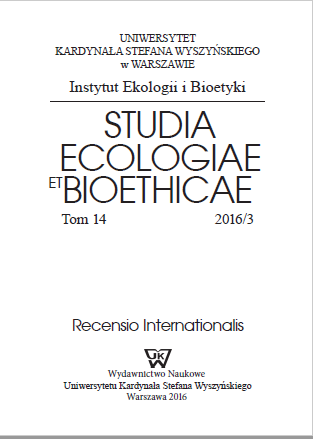Environmental alarmism: the Club of Rome and its critics
Environmental alarmism: the Club of Rome and its critics
Author(s): Nikolai MIHAILOV, Lidia SAKELARIEVASubject(s): Ethics / Practical Philosophy, Environmental and Energy policy, Human Ecology, Environmental interactions
Published by: Wydawnictwo Naukowe Uniwersytetu Kardynała Stefana Wyszyńskiego w Warszawie
Keywords: Club of Rome; economic growth; environmentalism; conservation ethics; alarmism; anti-alarmism; sustainability; market economy;
Summary/Abstract: The article is devoted to the ideas of the Club of Rome and their modern reading. The Club of Rome, founded in 1968, is an international society of politicians, business leaders, and scientists, who appeal for mutual tolerance, understanding, and solidarity in relation to the real problems of the world, and the environmental problems in the first place. The members of the Club prescribe the setting of limits to human expansion over nature, which is explained with superfluous “anthropocentric confidence”, after the words of the foundation member Aurelio Peccei. Recently, these ideas of the Club of Rome have been criticized by economists, philosophers, and politicians, being described as “environmental alarmism”, i.e. as groundless alarm relevant to incorrect notions about the inevitability of ecological crisis and its devastating consequences for humanity. However the global environmental crisis is already an undeniable fact and requires a thorough study of the ethical standards of the human behaviour, which are often rooted in moral phenomena such as consumerism, irresponsibility, insensitivity or even selfishness. Nature cannot be only considered as a source of natural resources or benefits to people.
Journal: Studia Ecologiae et Bioethicae
- Issue Year: 14/2016
- Issue No: 4
- Page Range: 129-145
- Page Count: 17
- Language: English

